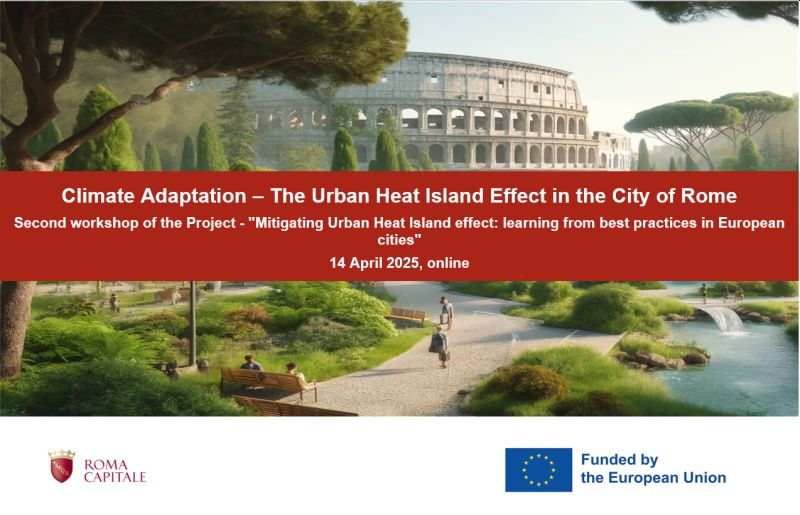Bild von Katia Babia auf Pixabay
Rome, like many cities in Southern and Western Europe, is facing significant challenges from climate change, particularly in the form of Urban Heat Islands (UHI). These localized areas within cities experience higher temperatures due to factors like dense urbanization, limited green spaces, and transportation patterns. This effect is especially pronounced in low-income neighborhoods, where the lack of green infrastructure exacerbates heat-related health risks and increases energy demand.
Over the past 50 years, Rome has experienced a 1.7°C rise in average temperatures, with some areas seeing even higher temperature spikes during the summer months. With extreme heat events projected to increase in frequency and severity, the city is focusing on UHI mitigation strategies to protect citizens, especially in vulnerable areas. This initiative aligns with the city’s broader climate adaptation efforts, including its active participation in global climate networks and its ongoing Climate Adaptation Strategy, which is set for finalization in 2024.
To address these risks, PwC is leading a project funded by the EU's DG REFORM, with the Ecologic Institute playing a key supporting role. This project will develop a detailed UHI risk profile for Rome, integrating data on the city’s demographics, urban layout, transportation systems, and green spaces.
Ecologic Institute is leading a benchmarking analysis to identify successful UHI mitigation strategies from other European and Italian cities. By analyzing key case studies, Ecologic aims to identify best practices and assess their applicability to Rome's specific context. Additionally, Ecologic Institute's work will involve stakeholder mapping to engage local decision-makers, citizens, and businesses, ensuring that the UHI mitigation measures are inclusive and effectively implemented.
With these efforts, the project aims to enhance Rome's resilience to extreme heat and provide actionable solutions for UHI mitigation that could be replicated in other cities. By combining expert analysis with local engagement, the project seeks to create a cooler, healthier environment for all of Rome's residents.




